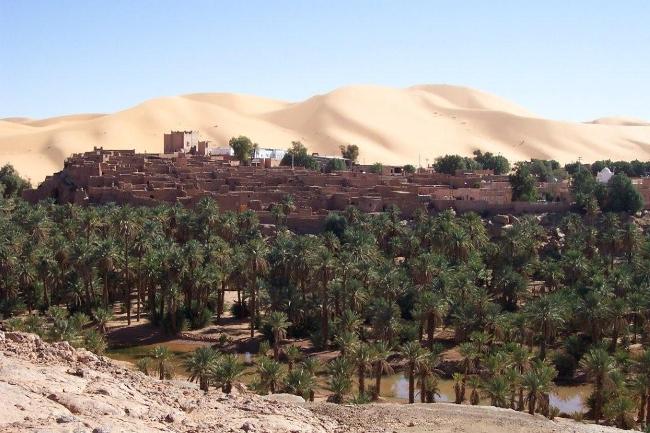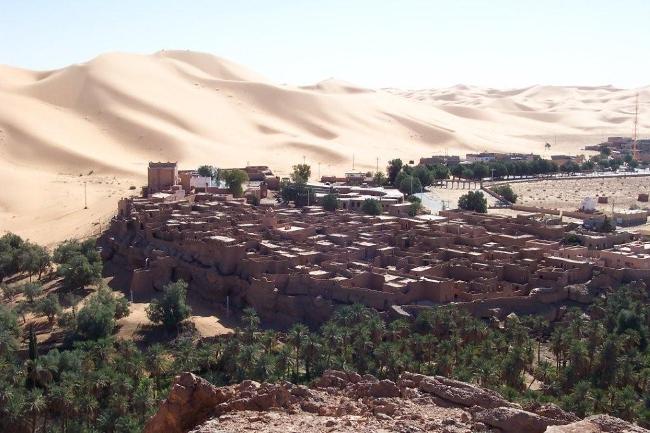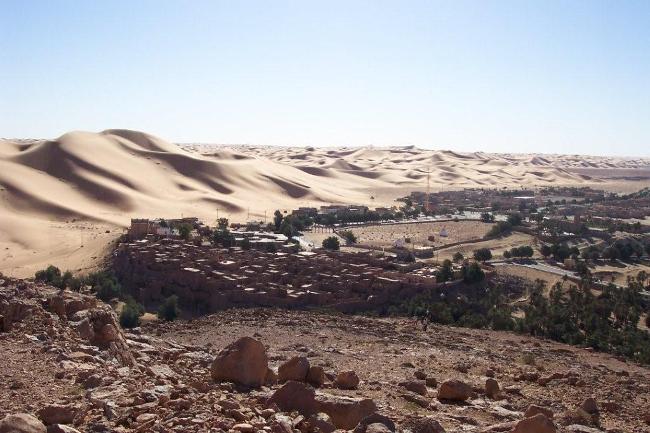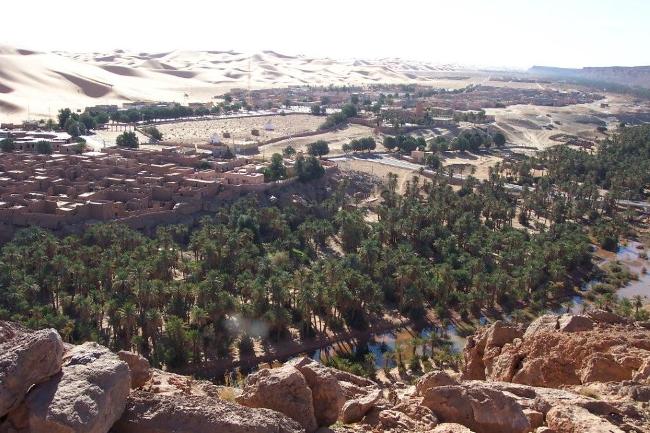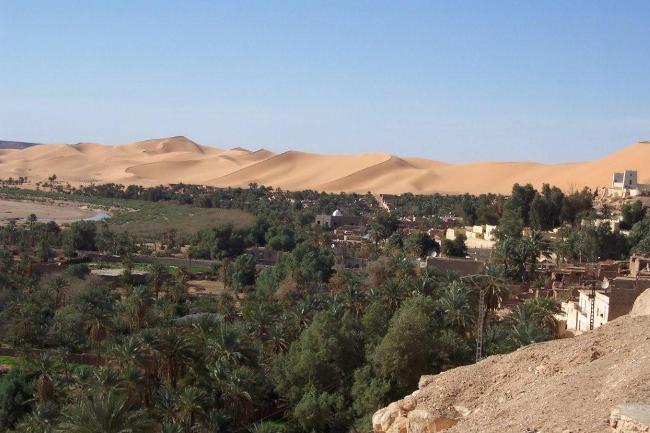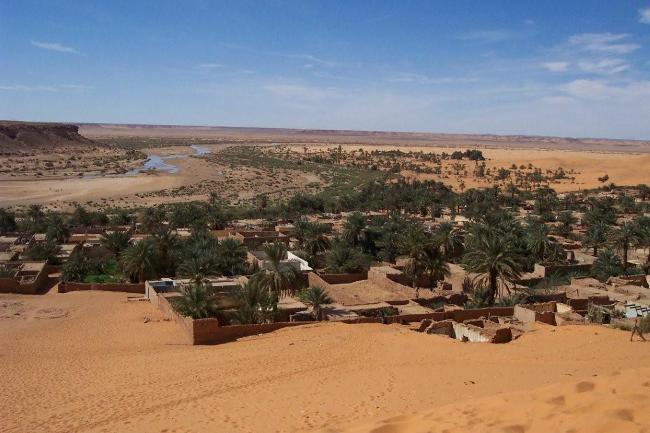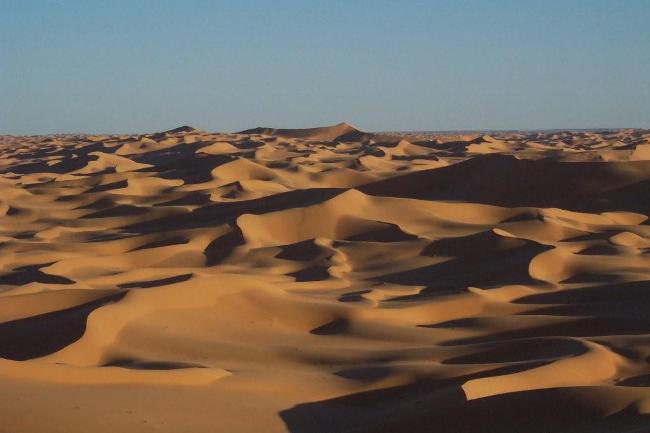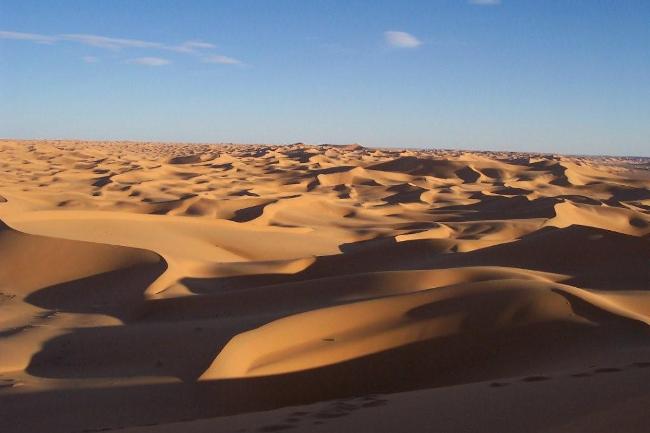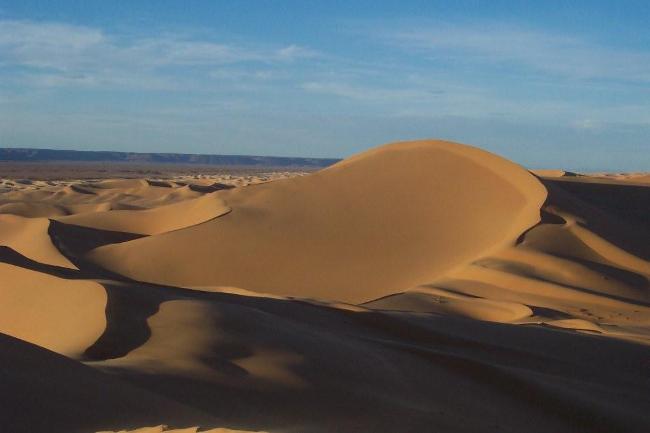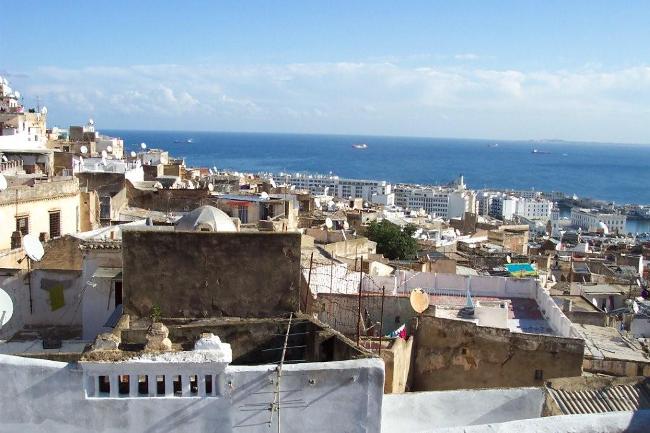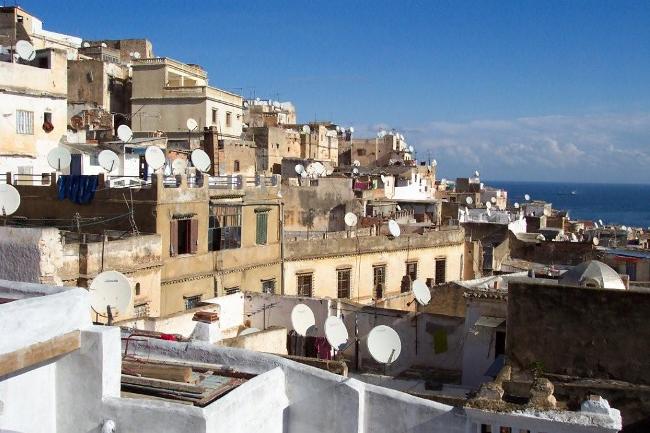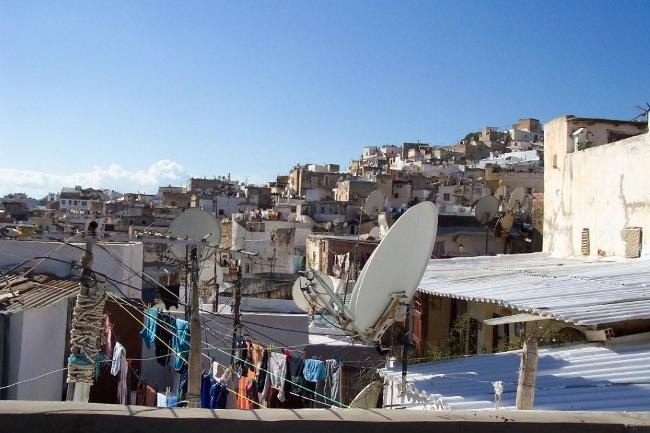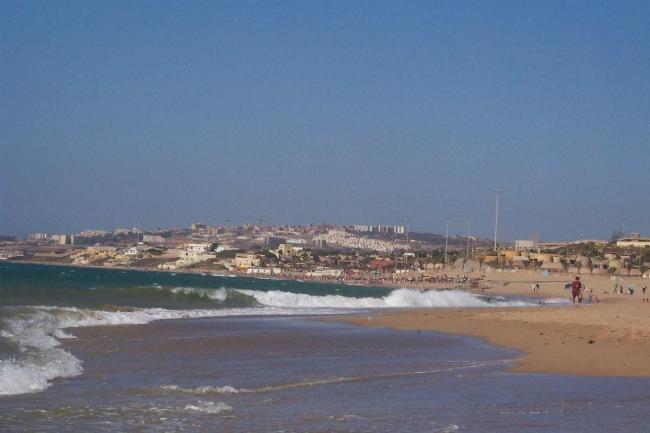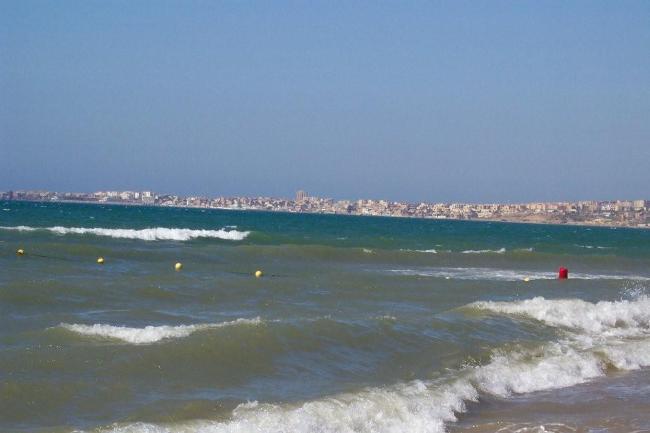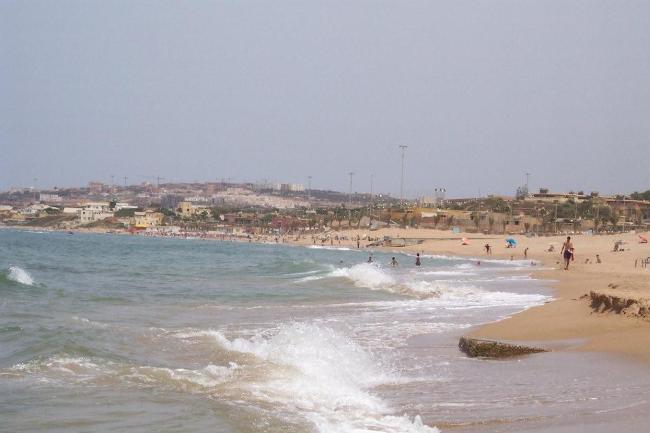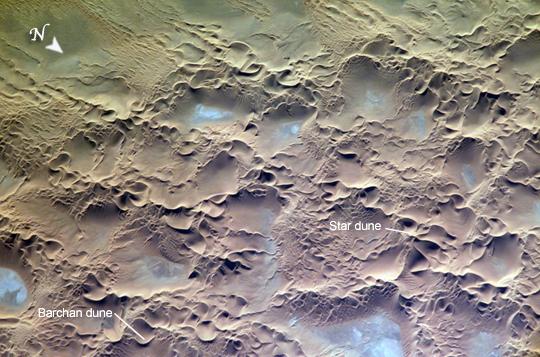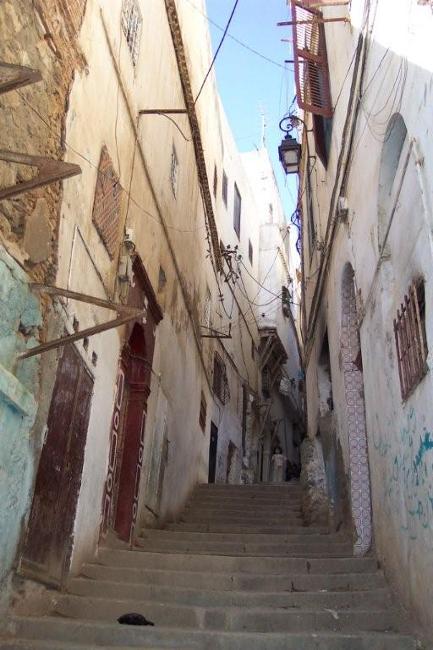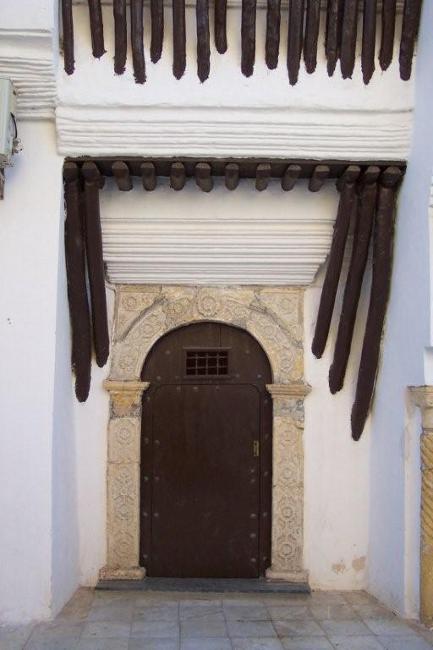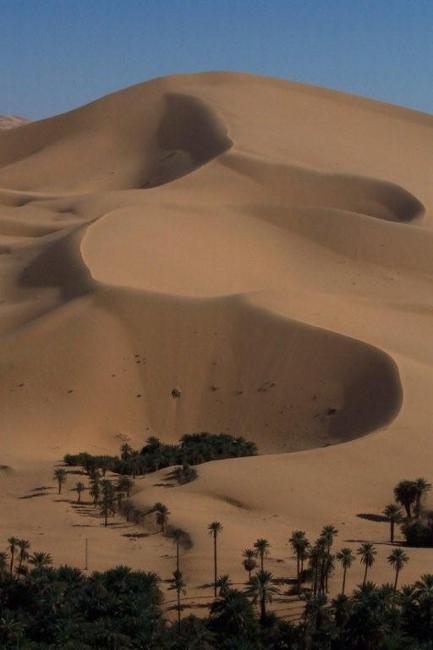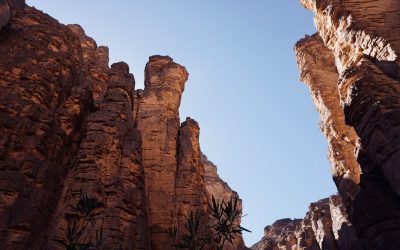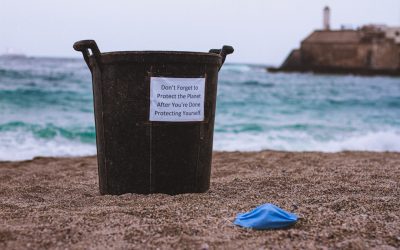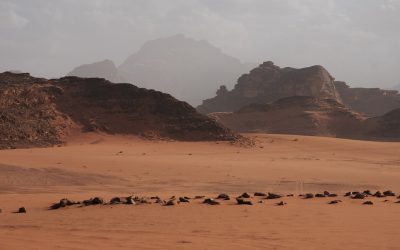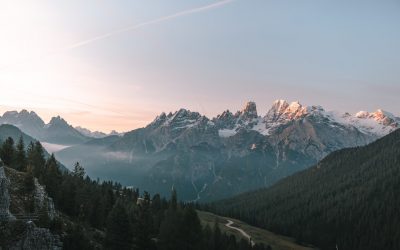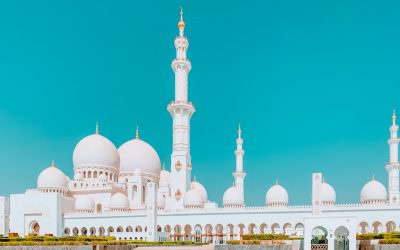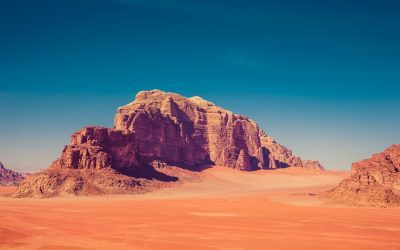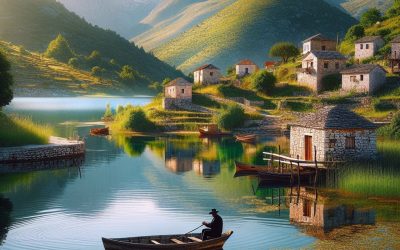Algeria
(Al-Jumhūriyyah al-Jazāʾiriyyah al-Dīmuqrāṭiyyah al-Shaʿbiyyah (People’s Democratic Republic of Algeria))

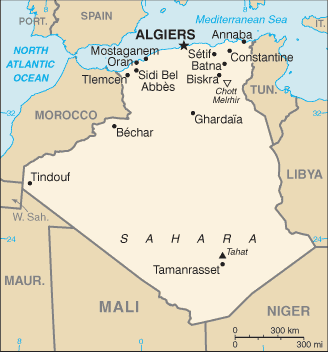
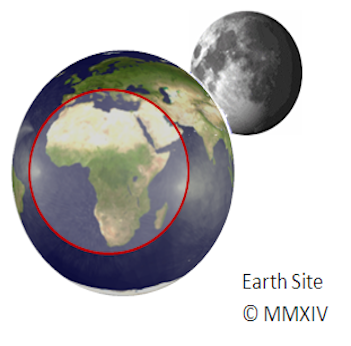
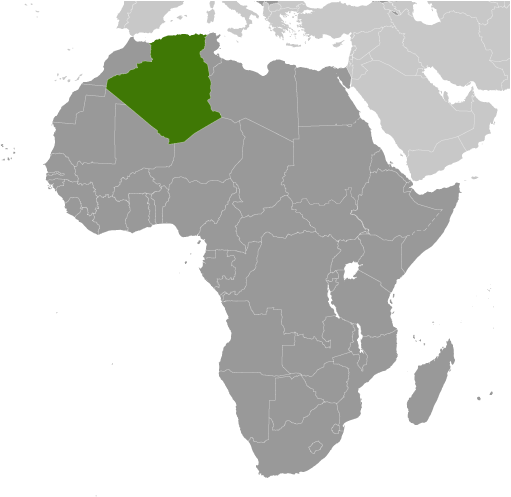
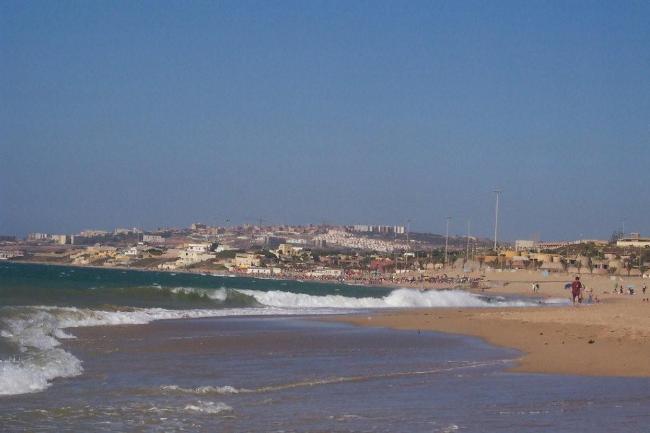
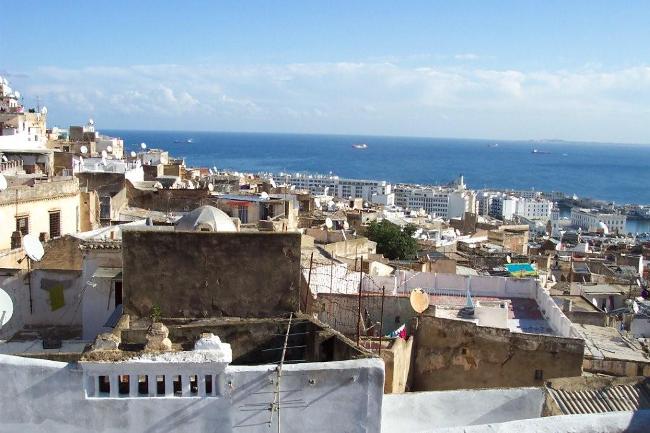
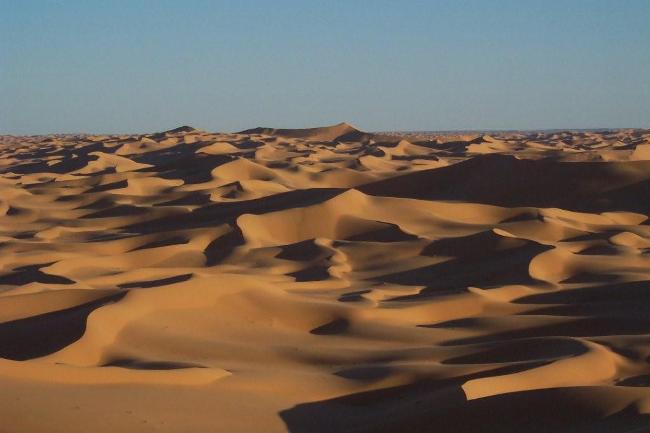
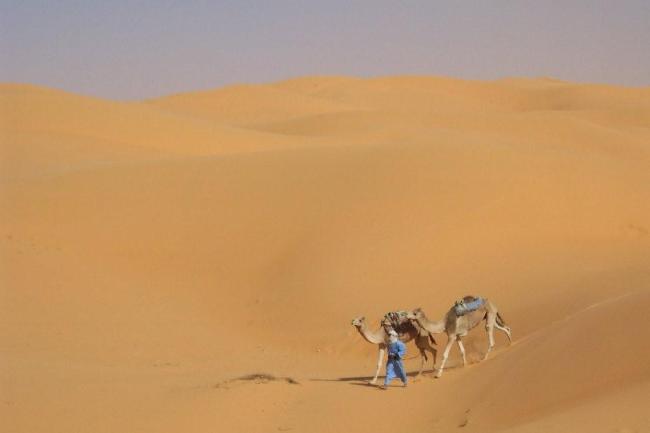
Capital: Algiers
Population (Estimated July 2012): 35,406,303
Area: 2,381,741km2 or 919,595mi2
Currency: Algerian Dinar (DA)
Official Language: Arabic
Political Information: Presidential Republic
Official Religion: Islam
(with approximately 99% of the population are Sunni Muslim and 1% are Christian or Jewish)
Highest Mountain: Tahat at 3,003m or 9852ft
Largest River: Chelif River at 700km long
GDP Official Exchange Rate (OER is more precise at gauging a countries economic power)
(Estimated 2011): $183.4 billion (US$) or £110,040 million (GBP)
GDP (OER) Per Capita (per member of the population estimated 2011): (US$) or (GBP)
GDP Purchasing Power Parity (PPP is good for gauging living conditions and use of resources but not as accurate as OER. This data has been calculated based on the sum value of all goods and services produced in the country valued at prices prevailing in the United States)
(Estimated 2011): $264.1 billion (US$) or £158,460 million(GBP)
GDP (PPP) Per Capita (per member of the population estimated 2011): $7,200 (US$) or £4,320(GBP)
Time Zone (GMT/UTC): +1:00
Counties/Provinces/States: Provinces (wilayat, singular – wilaya); Adrar, Ain Defla, Ain Temouchent, Alger, Annaba, Batna, Bechar, Bejaia, Biskra, Blida, Bordj Bou Arreridj, Bouira, Boumerdes, Chlef, Constantine, Djelfa, El Bayadh, El Oued, El Tarf, Ghardaia, Guelma, Illizi, Jijel, Khenchela, Laghouat, Mascara, Medea, Mila, Mostaganem, M’Sila, Naama, Oran, Ouargla, Oum el Bouaghi, Relizane, Saida, Setif, Sidi Bel Abbes, Skikda, Souk Ahras, Tamanghasset, Tebessa, Tiaret, Tindouf, Tipaza, Tissemsilt, Tizi Ouzou, Tlemcen
Leaders: President Abdelaziz Bouteflika
Sources: CIA World Fact Book, Encyclopaedia Britannica,
Algeria, located in North Africa, is the largest country on the continent and the 10th largest in the world. It is bordered by Tunisia and Libya to the east, Niger and Mali to the south, Mauritania, Western Sahara, and Morocco to the west, and the Mediterranean Sea to the north. With its strategic location, Algeria has played a significant role in North African history and politics.
A Brief History of Algeria: From French Colonization to Independence
Algeria’s history is marked by its colonization by France and its struggle for independence. The French arrived in Algeria in 1830 and gradually established control over the country. The Algerian people resisted French rule, leading to a long and bloody war for independence that lasted from 1954 to 1962.
Key events and figures in Algeria’s history include the Battle of Algiers in 1957, which was a turning point in the war for independence. The National Liberation Front (FLN), led by figures such as Ahmed Ben Bella and Houari Boumediene, played a crucial role in the fight against French colonialism. Finally, on July 5, 1962, Algeria gained its independence from France.
Geography and Climate of Algeria: A Diverse Landscape
Algeria’s geography is incredibly diverse, with a wide range of landscapes including mountains, deserts, and coastline. The Atlas Mountains run through the northern part of the country, providing stunning views and opportunities for hiking and exploration.
The Sahara Desert covers much of southern Algeria, offering a unique experience for adventurous travellers. The coastline along the Mediterranean Sea is dotted with beautiful beaches and vibrant cities such as Algiers and Oran.
In terms of climate, Algeria experiences a Mediterranean climate along the coast, with hot summers and mild winters. Inland areas have a desert climate, with extremely hot summers and cooler winters. The mountainous regions have a more temperate climate, with colder temperatures and more rainfall.
Culture and Society in Algeria: A Blend of Arab and Berber Traditions
Algeria’s culture is a rich blend of Arab and Berber traditions. The majority of the population is Arab, with Arabic being the official language. However, the Berber population, who are indigenous to North Africa, also play a significant role in Algerian culture.
The traditional dress in Algeria varies depending on the region, with many women wearing the hijab or traditional Berber clothing. Algerian cuisine is also influenced by both Arab and Berber traditions, with dishes such as couscous, tagines, and mint tea being popular.
Algeria’s society is predominantly Muslim, with Islam being the state religion. However, there is also a significant Christian minority in the country. Family is highly valued in Algerian society, with strong bonds between relatives and an emphasis on hospitality.
The Algerian Economy: Oil and Gas Dominance
Algeria’s economy is heavily reliant on oil and gas exports, which account for the majority of its revenue. The country has significant reserves of oil and natural gas, making it one of the largest producers in Africa.
However, Algeria faces challenges in diversifying its economy and reducing its dependence on oil and gas. The government has made efforts to promote other sectors such as agriculture, manufacturing, and tourism, but progress has been slow.
Politics and Government in Algeria: A Presidential Republic
Algeria is a presidential republic, with a president serving as both the head of state and the head of government. The president is elected by popular vote for a five-year term.
The political system in Algeria has been dominated by the National Liberation Front (FLN) since independence. However, there have been calls for political reform and greater democracy in recent years, particularly from the younger generation.
Education and Healthcare in Algeria: Progress and Challenges
Algeria has made significant progress in the areas of education and healthcare since independence. The government has invested heavily in these sectors, resulting in increased access to education and improved healthcare outcomes.
However, there are still challenges to be addressed. The quality of education and healthcare services varies across the country, with rural areas often lacking adequate facilities and resources. There is also a need for greater investment in research and development to drive innovation in these sectors.
Tourism in Algeria: A Hidden Gem in North Africa
Algeria has a wealth of historical and cultural attractions that make it a hidden gem in North Africa. The country is home to several UNESCO World Heritage sites, including the ancient Roman ruins of Djemila and Timgad, the medieval city of Algiers, and the prehistoric rock art of Tassili n’Ajjer.
In addition to its historical sites, Algeria also offers stunning natural landscapes such as the Sahara Desert, the Atlas Mountains, and the Mediterranean coastline. However, the tourism industry in Algeria is still relatively underdeveloped compared to its North African neighbours.
Cuisine of Algeria: A Fusion of Mediterranean and African Flavours
Algerian cuisine is a fusion of Mediterranean and African flavours, reflecting the country’s diverse cultural heritage. Staple foods include couscous, bread, lamb, chicken, and a variety of vegetables such as tomatoes, peppers, and olives.
Popular dishes include couscous with meat or vegetables, tagines (slow-cooked stews), merguez sausages, and pastries such as baklava and makroudh. Mint tea is a common beverage in Algeria and is often served with meals or as a gesture of hospitality.
Sports in Algeria: Football and More
Football is the most popular sport in Algeria, with the national team, known as the Desert Foxes, enjoying success on the international stage. The team has qualified for several FIFA World Cups and won the Africa Cup of Nations in 1990.
In addition to football, other popular sports in Algeria include athletics, handball, and basketball. The country has produced several successful athletes in these sports, including Olympic medalists and world champions.
Conclusion: Recap of Algeria’s unique history, culture, and opportunities for growth and development.
Algeria is a fascinating country with a rich history, diverse culture, and stunning natural landscapes. From its struggle for independence to its unique blend of Arab and Berber traditions, Algeria offers a unique experience for travellers.
While the country faces challenges in diversifying its economy and improving education and healthcare services, there are also opportunities for growth and development. With its historical and cultural attractions, Algeria has the potential to become a popular tourist destination in North Africa.
Overall, Algeria is a hidden gem that is waiting to be discovered by the world. Its unique history, culture, and natural beauty make it a truly special place that should not be overlooked.
Natural Resources of Algeria: Where Natural Resources are located In Algeria
Algeria, located in North Africa, is a country rich in natural resources. From oil and gas reserves to abundant mineral wealth, fertile land for agriculture, diverse forests and wildlife, renewable energy potential, water resources, fisheries, and building materials,...
Political Boundaries of Algeria: Provinces, Districts, or Historical Boundaries.
Political boundaries are the lines that separate one political entity from another, such as countries, provinces, or districts. These boundaries play a crucial role in a country’s governance and development, as they define the jurisdiction and authority of the...
Climate Zones of Algeria: Different climate regions Of Algeria
Algeria, located in North Africa, is the largest country on the continent and is known for its diverse geography and climate. The country stretches from the Mediterranean Sea in the north to the Sahara Desert in the south, and its climate zones vary greatly across its...
Terrain and Topography of Algeria: mountains, valleys, and plains.
Algeria, the largest country in Africa, is a land of diverse and breathtaking landscapes. From the majestic Atlas Mountains to the vast expanse of the Sahara Desert, Algeria’s terrain is as varied as it is beautiful. Understanding the geography and topography of...
Cultural or Historical Sites of Algeria: Important Cultural Landmarks or Historical Sites In Algeria
Introduction Algeria, located in North Africa, is a country with a rich cultural and historical heritage. From ancient Roman ruins to iconic mosques and historic cities, Algeria offers a wealth of attractions that showcase its diverse history and cultural influences....
Population Density of Algeria
Algeria, the largest country in Africa, is home to a diverse population. Understanding the population density of Algeria is crucial for sustainable development. Population density refers to the number of people living in a specific area, usually measured in terms of...
Discovering the Hidden Gems of Algeria: A Journey Through its Rich Culture and History
Algeria, located in North Africa, is a country that is often overlooked when it comes to tourism. However, this beautiful and diverse nation is home to a wealth of hidden treasures that are waiting to be discovered. From its rich cultural heritage to its stunning...
Albania
Albania (Republika e Shqipërisë (republic of Albania)) Capital: Tirana (Tiranë) Population (Estimated July 2012): 3,002,859 Area: 28,748km2 or 11,100mi2 Currency: Lek Official Language: Albanian Political Information: Parliamentary Republic Official Religion: No...
